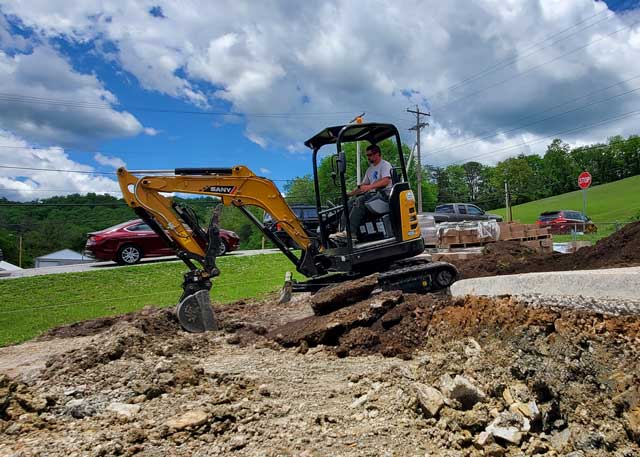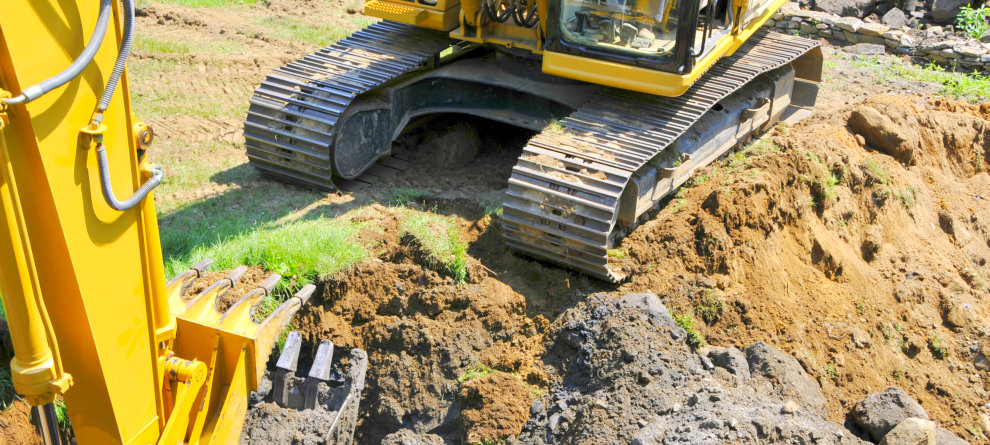Commercial Lancaster Trenching - Trenching Solutions for Services in Lancaster
Commercial Lancaster Trenching - Trenching Solutions for Services in Lancaster
Blog Article
Comprehensive Excavation Techniques: Mastering the Fundamentals for Success
In the realm of building and construction and civil design, the significance of efficient excavation strategies can not be overstated. The careful planning, specific implementation, and careful focus to detail needed in excavation jobs require a thorough technique that incorporates different essential facets. From initial soil analysis to the implementation of precaution and routine progression surveillance, grasping these core aspects is important for accomplishing success in any kind of excavation endeavor. Nevertheless, the real proficiency exists not just in comprehending these principles yet in seamlessly integrating them to browse the complexities of excavation tasks with skill.
Recognizing Excavation Job Planning

The preliminary stage of any type of excavation project is the planning stage, where essential decisions are made that can significantly influence the outcome of the project. Recognizing the task budget plan, range, and timeline constraints is crucial for producing a detailed excavation strategy that makes certain the job's success.
One secret aspect of excavation job planning is the development of a detailed timeline that lays out the sequence of due dates, landmarks, and activities. By meticulously considering all these elements throughout the preparation stage, excavation jobs can be implemented successfully and efficiently, leading to effective end results - dump truck companies in ohio.
Dirt Analysis and Website Assessment
Conducting thorough soil evaluation and website examination is an important action in the preparation stage of any excavation job. Soil analysis involves identifying the composition, structure, and residential properties of the soil at the excavation site. This info is critical for comprehending the dirt's bearing ability, moisture content, and capacity for disintegration, which are vital factors in identifying the excavation techniques and equipment needed for the job.
Website analysis goes beyond dirt evaluation and incorporates a more comprehensive assessment of the overall site conditions. This assessment includes determining any kind of prospective dangers, such as below ground utilities, ecological concerns, or unpredictable surface, that can influence the excavation process. By extensively evaluating the website, task supervisors can create reliable excavation strategies that focus on safety and security, performance, and ecological security.
Utilizing advanced technologies like ground-penetrating radar, soil sampling, and drone studies can boost the accuracy and effectiveness of soil evaluation and site evaluation. Spending time and resources in these initial steps can eventually save time and prevent pricey delays or issues during the excavation process.
Tools Choice and Utilization
Effective excavation projects rely greatly on critical tools selection and utilization to make certain ideal performance and performance. Selecting the best equipment for the task is crucial in making the most of effectiveness and decreasing downtime. Factors such as the sort of dirt, depth of excavation, and project scope play a substantial duty in determining one of the most appropriate devices for the task at hand.

Along with picking the ideal equipment, correct usage is crucial to job success. Operators needs to be educated to manage the devices securely and effectively - lancaster trenching. Routine upkeep checks and timely fixings aid protect against breakdowns and ensure constant efficiency throughout the job
Security Steps and Laws Compliance
In the world of excavation jobs, prioritizing precaution and conformity with regulations is critical to guaranteeing a protected and legally audio operational setting. Precaution include a variety of practices, consisting of carrying out detailed website analyses, executing proper signs and obstacles, and supplying sufficient safety and security training for all workers included in the excavation process. Adherence go right here to guidelines, such as OSHA demands in the United States, makes certain that the excavation task meets the required criteria to secure workers, bystanders, and the surrounding environment.

Tracking Development and Adjusting Methods
How can forecast supervisors successfully track the improvement of excavation jobs and adjust their techniques accordingly to enhance visit the website end results? Surveillance development is crucial for making sure that excavation tasks stay on track and fulfill deadlines.

Verdict
To conclude, grasping the principles of thorough excavation methods is necessary for the success of any project. By recognizing project preparation, examining soil and website problems, selecting suitable tools, following security regulations, and monitoring progression, task supervisors can ensure a smooth and reliable excavation process. Executing these strategies will certainly result in effective results and decrease prospective dangers or setbacks throughout the excavation job.
The first phase of any kind of excavation job is the preparation stage, where essential decisions are made that can significantly affect the result of the project. Comprehending the task scope, timeline, and budget plan restraints is essential for developing an extensive excavation strategy that guarantees the job's success.
Just how can project managers efficiently track the innovation of excavation jobs and adjust their strategies appropriately to enhance end results? By closely checking progress and being willing to adjust approaches, project supervisors can enhance the overall success of excavation jobs.
By comprehending job preparation, analyzing soil and site conditions, choosing suitable devices, abiding with safety policies, and keeping an eye on progress, project supervisors can guarantee a smooth and effective excavation process.
Report this page